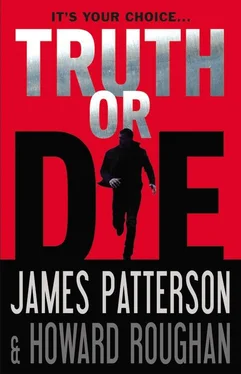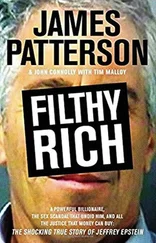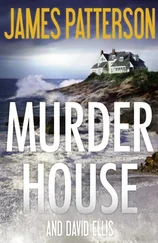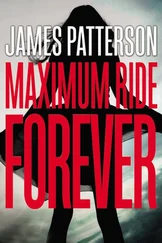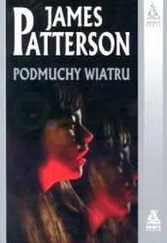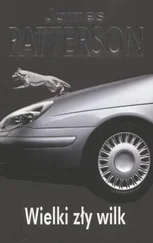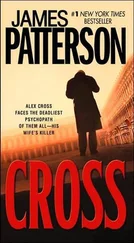The bartender, tall and thin and hunched with age, nodded, completely expressionless, before heading off to grab the bottle. He might as well have had a sign hanging around his neck that read NO JUDGMENTS.
Waiting for him to return, I looked around a bit. Fittingly, the Oak Tavern was a genuine throwback, not the kind of place that hung reproduction crap on the wall to imitate a time gone by.
Instead, what hung on the wall was actual crap and old as shit. Signed photos of D-list celebrities from the seventies. A painting of a horse that looked as if it had been bought at one of those hotel art fairs off the highway. And right next to it, a coatrack missing half its pegs.
Genuine as well was the musty smell of the place. I could practically feel the dust traveling up my nose with each breath.
“Five fifty,” said the bartender, standing in front of me again and pouring.
I gave him seven, picked up my glass, and headed for the rear of the tavern and a row of booths. They were those classic high-back ones, the crimson leather so worn and cracked it looked like a marbleized porterhouse. I slid into the last booth on the left, beyond the line of sight from the bar.
A few minutes later, the kid arrived.
As he walked toward me, I noticed that almost everything about him was a contradiction. He was skinny, with unusually broad shoulders. He had disheveled hair and slacker clothes and was staring ahead with the most focused eyes I’d ever seen. His gait was slow and deliberate, and yet his hands couldn’t keep still. He was rubbing them together as if they were under some imaginary faucet.
The kid sat down across from me without saying a word. No introduction. No offer of a handshake, either, lest one of those hands of his might actually have to stop moving while waiting to grip mine. Finally, he spoke.
“Sorry for all this,” he said.
That was the biggest contradiction of all, as far as I was concerned. “For what?” I asked. “You saved my life.”
“I’m the only reason it was ever in danger, dude.”
“We’ll get to that in a moment,” I said. “That, and whether I’m really going to let you call me dude. But speaking of names, what’s yours? And don’t say Winston Smith.”
“It’s Owen,” he answered.
“And you already know mine, don’t you? Among other things.”
He nodded.
“Are you some kind of hacker?” I asked.
“It’s not what I do for a living, if that’s what you’re wondering.”
“Okay. What do you do for a living?”
But it was as if he hadn’t heard me. Or, more likely, as if he needed to ask a few questions for himself before answering that one.
“What’s your connection to Claire?”
“Close friend,” I answered. It was a good enough explanation for the time being.
“Are you a reporter?”
“No.”
“You don’t work at the Times ?”
“No.”
He hesitated, reluctant to ask his next question. He needed to know, though, and I needed to tell him.
“She’s dead, isn’t she?” he asked.
“Yes,” I answered.
I explained how it had happened. His head dropped. “It’s my fault,” he said. “Everything.”
“Claire would’ve been the first to tell you that isn’t true,” I said. “And I’d be the second.”
“How do you know?”
“Because I was with her before she went to meet you. This was her job, Owen. It’s what she did.”
“So you knew about me?”
I smiled. “No. Claire never discussed her sources. I don’t even know how she found you.”
“She didn’t — I found her,” he said. “I knew her work. That’s why I called her.”
“When was this?”
“She and I spoke two days ago,” he said. “I was planning on coming up here next week.”
“What changed?”
He reached into his pocket, taking out his iPhone. After a few taps, he handed it to me. On the screen was an obituary from the online edition of the Sun Gazette down in Virginia. “Dr. Stephen Hellerman, 48, Leading Neurologist,” the headline read. A picture of a clean-cut, good-looking guy was underneath.
“Who’s that?” I asked.
“My boss.”
I leaned in, squinting to read the first few sentences. “‘An early-morning home invasion’?”
“That’s what it was made to look like. They shot him in the head. Then, last night, they almost got me, too.”
“Who’s they ?”
“I’m not sure yet. I was hoping Claire could tell me.”
Were we homing in, I wondered, or just going around in circles? “Why would she know?” I asked.
“The piece she wrote last year about the CIA black site in Poland.”
I knew the article well, if only because Claire was in Warsaw for two weeks researching it, and missed my birthday. “The secret jail?”
“Yeah, in Stare Kiejkuty,” he said with a perfect Polish accent. Impressive.
Stare Kiejkuty was a Polish intelligence-training site tucked away in a forest about two hours north of the capital. Claire got a guided tour of it from Polish officials, the key word being guided . As she described it, the whole purpose of the tour was to convince her the CIA wasn’t using a spare room or two to interrogate suspected Muslim terrorists outside the reach of US legal protections.
“So you have actual proof that it’s a CIA black site?” I asked.
The kid shook his head slowly. “No, what I have goes way beyond that,” he said. “Way beyond.”
“Do you know the name Abdullah al-Hazim?” Owen asked.
“No,” I said. “Should I?”
“He was thought to be the number two guy in Al Qaeda,” he explained. “Of course, it’s pretty silly how we imagine terrorist groups to be structured like our own government, with a neatly organized line of succession. Let’s just say al-Hazim was one of the ringleaders based in Yemen.”
“Was?”
“About a year ago, the State Department announced he’d been killed by a drone attack in the Shabwah province,” Owen said. “If I’m not mistaken, the Times gave it two columns above the fold in the International section.”
Two columns above the fold...
“You sound like Claire,” I said. “There was the story, and then there was where the story was placed.”
“In this case, though, the story was wrong.”
“The guy’s still alive?”
“No, al-Hazim is dead, all right. It just wasn’t a drone attack that killed him.”
With that, Owen slid out of the booth and joined me on my side. I didn’t know what he was doing until he removed a small device from his pocket, attaching it to the Lightning dock on his iPhone. It was one of those tiny portable projectors. We were going to the movies.
The backrest of the bench where he’d been sitting became the screen. The video was black-and-white and as grainy as the leather of the booth, but it was clear enough to see what was happening... and to whom.
“That’s al-Hazim in the chair,” said Owen.
The Middle Eastern man was probably in his late thirties, with a short beard and rimless glasses. I was hardly an expert on body language, but this was an easy read. Al-Hazim was trying to act defiant but was clearly scared to death.
“This is from Stare Kiejkuty?” I asked.
“Yeah.”
The room was average-sized and well lit, albeit with no windows I could see. The chair al-Hazim was shackled to — hands and feet — was the only furniture, at least in front of the camera. There were two male voices in the background speaking English, but I couldn’t make out the conversation.
I turned to Owen. “What are they saying?”
Читать дальше
